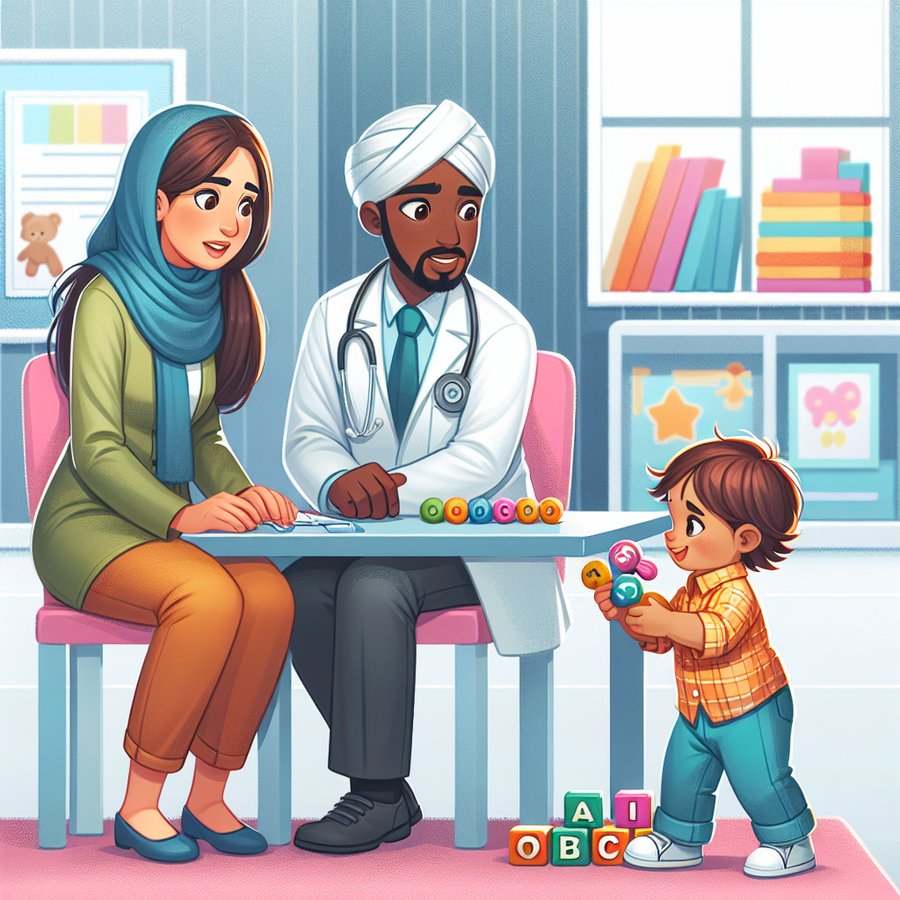When to worry about a toddler not talking is a question many parents ask themselves as their child grows. It’s a pivotal time in a child’s development when they start to express themselves through words. However, every child develops at their own pace, and for some, speech may come a bit later than expected. This article aims to provide insights into understanding speech delays in toddlers, identifying when it might be a concern, and offering strategies to support your child’s language development.
Identifying Normal Speech Development Milestones
Understanding what’s typical in speech development is the first step in recognizing if there might be a delay. Most children start to babble around 6 months and say their first words between 12 to 18 months. However, there’s a wide range of normal, and some toddlers may take a little longer. Language development milestones for 2-year-olds can include stringing two words together, understanding simple instructions, and having a vocabulary of around 50 words. It’s important to observe your child’s progress and not just the milestones themselves.
If you’re concerned about your toddler’s speech development, consider their overall communication skills. Are they making eye contact, using gestures, or responding to their name? These non-verbal forms of communication can be indicative of their understanding and desire to communicate, even if the words aren’t quite there yet.
When to Worry About a Toddler Not Talking
When to worry about a toddler not talking becomes a more pressing question as your child approaches certain age milestones without showing typical signs of speech development. While variations in development are normal, certain red flags may warrant further evaluation. These include a lack of babbling by 12 months, not saying single words by 16 months, or not combining two words by 24 months. Additionally, if your toddler is showing signs of regression, such as losing words they previously used, it’s advisable to seek professional advice.
Other signs that may indicate a need for concern include difficulty understanding simple instructions, not responding to their name, and a lack of interest in communicating. If you observe any of these signs, speaking with a pediatrician or a speech-language pathologist can provide guidance. They can assess your child’s development and offer strategies or interventions to support their language skills.
Supporting Your Toddler’s Speech Development
There are numerous ways to support your toddler’s speech development at home. Engaging in daily conversation, reading together, and incorporating play-based learning are all effective methods. For instance, building a reading routine can expose your toddler to new vocabulary and concepts, fostering language acquisition. Similarly, encouraging exploration and curiosity through play provides natural opportunities for your child to learn and use new words.
In addition to these at-home strategies, there are professional interventions available for toddlers experiencing speech delays. Speech therapy can be highly beneficial, offering tailored support to meet your child’s specific needs. Early intervention is key, as it can significantly impact a child’s ability to communicate effectively.
Understanding when to worry about a toddler not talking is crucial for early detection and intervention, which can lead to better outcomes. By being proactive and supportive, parents can play a significant role in their child’s speech and language development. Remember, every child is unique, and with the right support, most speech and language challenges can be overcome.
For further information on supporting language development, consider exploring resources like the American Speech-Language-Hearing Association for expert guidance and strategies.













